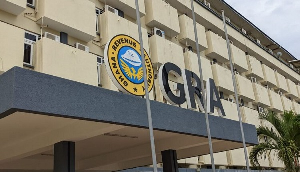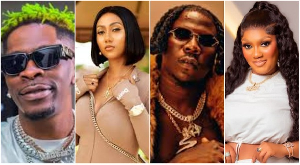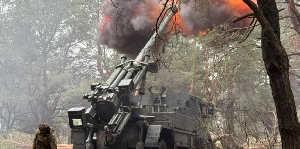There are memorable, special events or occasions in every nation’s life when her citizens put aside their inevitable differences and rally together, whether to celebrate a sporting or war victory or to share their pain in defeat or deal with a national disaster. In Sri Lanka, for instance, the devastating Boxing Day 2004 tsunami had the remarkable effect of bringing together rebel and government forces to assist in the relief effort. Of course one does not wish for a calamity or disaster to act as a nation’s binding agent. However, these moments have the powerful effect of reminding the nation’s people that there is a common thread that runs across the spectrum of society and holds it together, and that the fault lines that may exist in that society can and must be overcome in one way or the other.
I have just returned to the UK from a short trip to Ghana and was fortunate enough to have been there on 6th March 2007, at the height of the golden jubilee celebrations almost two weeks ago. Prior to my departure, I had read on various websites about the apparent general indifference of Ghanaians to the whole celebrations, including the $20 million price tag that many people deemed rather obscene. I therefore expected to find on arrival that the whole affair would be a rather damp squib. And yet I was pleasantly surprised to note that the mood in the capital was anything but low key. The whole of Accra was agog and seemed awash in national flags fluttering aside the jubilee flag. Private cars, homes and businesses proudly flew their flags, with Paloma Hotel/Restaurant on the Ring Road stealing the show with a giant flag that obliterated the main building’s entire façade and dominated its environs. Streetlights, trees, railings, and statues were not left out of the show, festooned as they were with the nation’s colours. Clearly, the occasion meant a lot to many as a significant milestone in the nation’s history, and some pundits had simply got the level of Ghanaians’ interest in the whole show totally wrong. You could cut through the air thick with excitement. My friends told me the atmosphere was comparable to the time when Ghana was progressing through their matches at the last World Cup in 2006.
It was certainly heart-warming to see many people clearly enjoying themselves and engaging in banter with perfect strangers over the occasion, whilst cheekily speculating about what would happen to the luxury cars that the government had commandeered to ferry its guests around after they had left. Almost everybody-from office workers to taxi drivers and fan milk vendors-was wearing something identifiable with the national colours. These included ties, cuff links, wristbands, and necklaces, scarves, T Shirts, caps and so many more. The irony that all these had been imported from China fifty years after we became independent seemed lost on some people. In the bright sunshine, the explosion of colour was simply a sight to behold. I was expecting to see a brave soul whose teeth had been sprayed in the national colours, but alas, did not see any. The most extreme personal depiction I saw was people having their faces or entire bodies daubed in paint depicting the national colours.
One woman I shared a taxi with on 6th March seemed to be taking the whole issue really seriously. She was dressed in a red shirt and a yellow pair of trousers with a black, star-shaped buckle on her belt, which looked as wide as the WBC heavyweight title belt. The ensemble was topped off with a green pair shoes. We got chatting as the taxi stalled in the notorious Teshie Beach Road traffic and our brains were being slowly roasted in the afternoon heat. She was really ecstatic that she was witnessing such an important day. She accepted that was unlikely to be around for Ghana@100, and that at the very best she would be a 95-year old lady hobbling about on a walking stick with an empty gum save for a couple of stumps that had once been her teeth. For her, this was a good enough reason to go all out and party whilst she could. I asked her whether she was not concerned that the nation had a lot of priority problems that made the $20million celebrations rather pointless and hollow, as claimed by some. Clutching a half-empty bottle of Club beer in her hand, she gave me a withering stare, as if she believed my brains had deserted me and that I must have been smoking or sniffing something illegal. ‘Ah, braa paa’, she replied wistfully, ‘don’t you know that even when you are weeping, you sometimes pause your tears in order to blow your nose? Life must go on, for there will only be one Ghana@50. ’ I did not dare fault her logic-not with those eyes of hers boring into me like a pneumatic drill.
Watching the proceedings of the 6th March parade live on television, I was struck by the vast crowds that thronged the Independence Square to witness the events, waving their miniature flags, snapping away on their mobile phone cameras for posterity and clearly enjoying themselves. Other events to celebrate the anniversary seemed well patronised too. The chiefs and other invited guests provided an extra splash of colour with their beautiful kente cloths and northern smocks, whilst the ladies wore their jubilee cloths in assorted ‘kaba and slit’ styles that brought out the best in Ghanaian couture. Giant, throbbing traditional drums being pounded by bare-chested drummers provided a wonderful backdrop against the trappings of modernity-the sleek cars gliding onto the grounds, the smartly attired soldiers and the presidential security men in their suits and dark glasses– all under a cloudless blue sky. It was hard not to feel a huge lump in the throat at the splendour of it all. For that day, at least, we could as a nation put aside our differences and our many woes and find something to celebrate together- a special day in the nation’s history that served as a rallying point to remind us that we are indeed one people with a common destiny.
Of course, it is valid that we ask tough questions on the amount of spending on the golden jubilee celebrations, including whether or not there are sufficient controls and measures in place to ensure that the money is accounted for properly. And I think certainly there were flaws in the planning. For instance I believe that the cars imported by the government for its guests are a waste because I am confident that the local car rental market could have absorbed that demand at a cheaper cost to the national treasury.
That said, however, I do believe that it was right in principle for the nation to celebrate its golden jubilee on the scale that it did. I do not share the view of those who believe that Ghana has achieved nothing that makes it worth celebrating, and that even 10 cedis spent on the jubilee is a waste because it could have gone into education, rural electrification, prevention of guinea worm or better roads. I find this argument rather curious, because national development requires a multi-dimensional approach, or else we would be justified in neglecting sports and the arts if we were to pursue that argument to its logical conclusion.
I think that the focus on our jubilee marketed the country abroad in a way as never before, and that the results to be gained in terms of potential inward investment and tourism growth are both substantial and long-term. In any case, to paraphrase the Good Book, a nation must not live by affordable education, potable water and good roads alone. Of course there is no doubt that these tangible facilities are central to a nation’s well-being and economic development. But whilst striving to obtain them in every possible way we can, we must also cultivate the national spirit that celebrates citizens who are proud of their country first and foremost, and who are encouraged and reminded to see each other not from across an ethnic or social divide but as one people coming together for the common good.
Both the 2006 World Cup and the golden jubilee provided wonderful platforms for the expression of such an outpour of national fervour and a feel good factor among Ghanaians. Whilst we rightly strive for a more prosperous society, let us not lose sight of this crucial aspect of nation-building. The two are not mutually exclusive.















